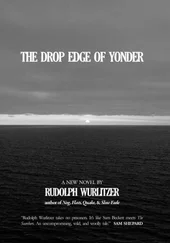The whole indecorous, threadbare ruin, from the broken shoes to the prematurely grey scanty hair, grovelled. The very breathing of the figure was contemptible as it laboured and rattled in that operation like a blundering clock.
Mr. Dolls is given his name by Eugene Wrayburn, because Jenny Wren is the “doll’s dressmaker.” But the name points to him as a person who is like a thing, and Mr. Dolls either refers to himself in the third person or drops the I altogether: “Poor shattered individual. Trouble nobody long,” he says, but the muttered phrase he repeats over and over in his defense is: “Circumstances over which had no control.” These are the same circumstances under which Harmon is supposed to have died: “and that the said John Harmon had come by his death under highly suspicious circumstances” and also, “He [Harmon] had lapsed into the condition in which he found himself, as many a man lapses into many a condition, without perceiving the accumulative power of its separate circumstances.” The word circumstances acts as a synonym for otherness in the novel — that inchoate zone of the third person that rises up to disfigure, erase, and silence. A man has trouble speaking. He begins to stutter and loses control of language — the very stuff that makes him human. He loses himself. Without an I, there can be no you.
Dialogue is possible only with mutual recognition. When Bradley Headstone cries out, “ I have been set aside and I have been cast out,” he has reached the end of reciprocal speech. Wrayburn insults Headstone by referring to him as “Schoolmaster,” not by his name. “I don’t know why you address me—” Headstone says, and Eugene snaps back, “Then I won’t.” The humiliation annihilates. I do not address you. You do not exist. Self-consciousness is born in another person. It grows from that essential relation and can’t exist without it. Dickens’s story of recognition is Hegelian, dialectical. We are all made through the eyes of another, the place where we are recognized and called by name. As John Harmon says, “A spirit that once was a man, could hardly feel stranger or lonelier going unrecognized among mankind than I feel.”
Later, an unrecognized man who was once John Harmon tries to piece together the mystery of his own narrative, the circumstances of his own “death,” but his memory is spotty. Here is the passage in full:
‘Now, I pass to sick and deranged impressions; they are so strong, that I rely upon them; but there are spaces between them that I know nothing about, and they are not pervaded by any idea of time.
‘I had drunk some coffee, when to my sense of sight he [Radfoot] began to swell immensely.… We had a struggle near the door.… I dropped down. Lying helpless on the ground, I was turned over by a foot.… I saw a figure like myself lying on a bed. What might have been, for anything I knew, a silence of days, weeks, months, years, was broken by a violent wrestling of men all over the room. The figure like myself was assailed and my valise was in its hand. I was trodden upon and fallen over. I heard a noise of blows, and thought it was a woodcutter cutting down a tree. I could not have said that my name was John Harmon — I could not have thought it — I didn’t know it — but when I heard the blows, I thought of the woodcutter and his axe, and had some dead idea that I was lying in a forest.
‘This is still correct? Still correct, with the exception that I cannot possibly express it to myself without using the word I. But it was not I. There was no such thing as I, within my knowledge.
‘It was only after a downward slide through something like a tube, and then a great noise and a sparkling and crackling as of fires, that the consciousness came upon me, “This is John Harmon drowning! John Harmon, struggle for your life. John Harmon, call on heaven and save yourself!” I think I cried it out aloud in great agony, and then a heavy, horrid, unintelligible something vanished, and it was I who was struggling there alone in the water!’
This remarkable monologue encapsulates the novel as a whole. Harmon’s return to life comes with the memory of his proper name at the very moment he recognizes himself from outside himself — as a person who has been named, as someone who is part of a community of speakers and therefore part of the world. And this event of regaining the self is imagined as taking place after the violence of a birth or rebirth, complete with a bizarre slide “through something like a tube.” After he emerges from the tube, he finds the name and sees himself. Before the drowning, he is doubled in Radfoot. Only when he calls himself by name does he reclaim the double as himself. This time, the double as mirror image serves as a therapeutic vision of the self as whole. Harmon’s telling is an agonizing re-collection of the broken, unrecognized body that lies at the heart of the novel. This alienating moment of seeing one’s self — of doubling and reflection — is a moment of crisis that results in either cohesion or distintegration. John Harmon, Bella Wilfer, and Eugene Wrayburn are rehabilitated through others and find a place within the community. Bradley Headstone, Riderhood, and Mr. Dolls go to pieces. By pronouncing his own name, Harmon expels the it, the “heavy, horrid, unintelligible something”—the abject corpse of the other man — which is also his own drowning, his own death, and his own corpse. Then and only then is it possible for Harmon to find himself inside language and to use the word I.
6 The Dream of a Common Language
When one does not possess the categories of recollection and repetition the whole of life is resolved into void and empty noise.
— Kierkegaard, Repetition
From recognition and singular naming comes an image of wholeness — the fully articulated body and the I. Those characters who have stable names, who are not beset with myriad nicknames and pseudonyms, display a power to revive and heal that is not given to characters with multiple appellations. Lizzie Hexam, for example, is only called Lizzie. The purity of Lizzie’s name throughout the novel contrasts starkly with the fickle Bella Wilfer, who is riddled by many designations. Lizzie watches the fire and sees images of “fancy” in it, while Bella looks in her mirror at a reflection she calls, among other things, “Beast” and “Dragon”—further images of the monstrous, unknowable self. But Lizzie is the one who hauls Eugene from the river, a body so badly disfigured that, the reader is told, his own mother might not have recognized him. When he hovers between life and death, the word Lizzie becomes a vehicle of rescue for Eugene: “The one word Lizzie, he muttered millions of times.” The repetitions are agitated, fitful. He utters the name in “a hurried and impatient manner with the misery of a machine” and then “in a tone of subdued horror.” Eugene’s palilalia recalls both Headstone’s teaching and the mechanical sputterings of Mr. Dolls, and like these pathological repetitions, it is a symptom of a fall into that borderland between life and death, the very place where John Harmon loses and then finds himself. Indeed, the narrator calls Eugene’s feverish utterances “the frequent rising of a drowning man from the deep.” When Lizzie touches him, the palilalia stops. In a moment of lucidity, he says to her, “When you see me wandering away from this refuge that I have so ill deserved, speak to me by my name, and I think I shall come back.” Again and again, Lizzie recalls him from insentience. Hers is a purely human magic, which gives language the confidence of creation — of calling something — someone — into being. The critical distinction between demonic and magical utterance lies in the difference between speaking to no one and speaking to someone.
Читать дальше












